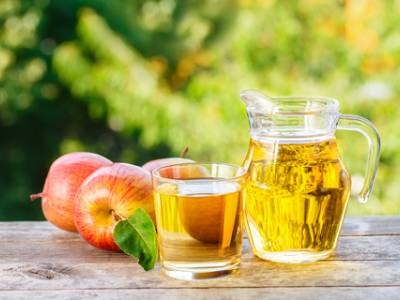The researchers identified three new bacteria of the Alicyclobacillus genus: A. mali, A. fructus and A. suci. One of these species, A. suci, produces guaiacol, which creates a medicinal, smoky or rubber-like flavor in shelf-stable apple juice. Alicyclobacillus bacteria are extremophiles whose spores can survive the high acidity of the juice and the extreme heat of the pasteurization process. They can contaminate apples from the soil of orchards and germinate, grow and produce guaiacol in the beverage and other products derived from apples, causing spoilage without changing the visible appearance of the juice.
The researchers used genomic, biochemical and phenotypic analyses in order to identify the three new species, leveraging decades of previous work on samples from the beverage industry in New York, the second-largest apple-producing state in the U.S. While Alicyclobacillus bacteria are not toxic or pathogenic in humans, their negative impact on apple juice flavor can force the product to be thrown out before it is sold. If contaminated juice does make it to the shelf, unhappy customers can lead to lower brand reputation and, ultimately, lower profits. The findings of the study, published in the International Journal of Systematic and Evolutionary Microbiology, can aid in the development of tools and technology to detect and control more juice-spoiling bacteria.
“Better understanding the structure of the Alicyclobacillus genus and the spoilage potential of individual species drives improvement in quality management decisions that reduce waste and improve customer satisfaction,” said senior author Abigail Snyder.

